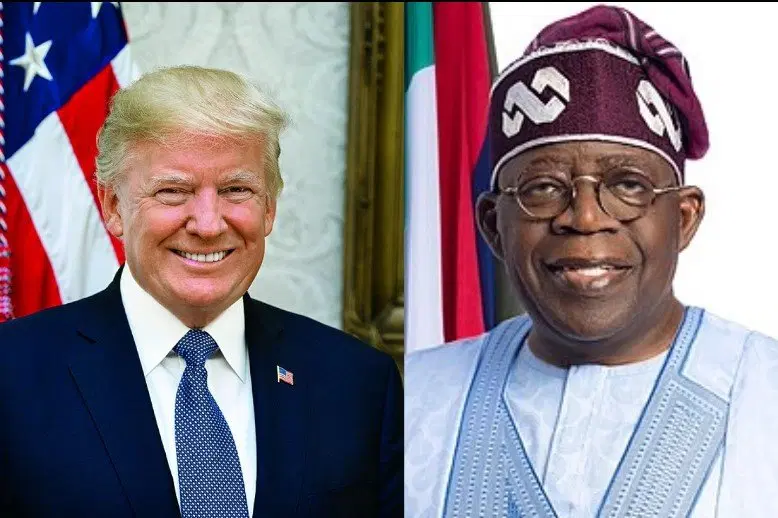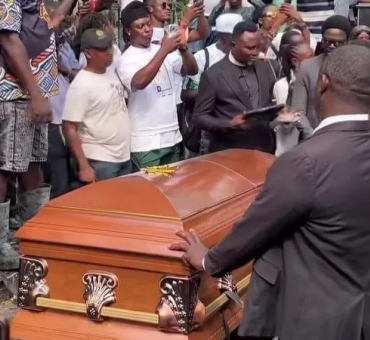The Federal Government has reaffirmed that ongoing diplomatic engagements between Nigeria and the United States are yielding positive results, with both nations working to ease recent tensions and strengthen long-standing relations.
Officials disclosed that open channels of communication have led to a better mutual understanding, particularly regarding the complexities surrounding Nigeria’s internal security challenges and social diversity.
Speaking in a televised interview, Nigeria’s Minister of Information and National Orientation noted that constructive dialogue is helping to dispel earlier misconceptions about the country. He explained that many of the misunderstandings between Nigeria and its foreign partners stemmed from an incomplete grasp of the intricate nature of Nigeria’s ethnic, political, and religious dynamics.
According to him, recent intelligence reports revealed connections between a proscribed separatist organization in Nigeria and certain lobby groups in the United States allegedly working to misrepresent the country’s situation to American policymakers. The Minister described these efforts as deliberate attempts to distort Nigeria’s image and influence international opinion through misinformation.
Reaffirming the nation’s commitment to peace and partnership, he emphasized Nigeria’s long history of collaboration with the United States in fighting terrorism and violent extremism. He expressed optimism that renewed cooperation would lead to lasting stability, particularly in regions affected by insurgency and communal violence.
He added that while Nigeria acknowledges its ongoing conflicts, it remains committed to religious freedom and national unity. “Our constitution guarantees freedom of worship, and our country remains a multi-faith society,” he said. “The current security challenges are not rooted in religious persecution but in a complex mix of local grievances, poverty, and extremist manipulation.”
Growing International Pressure
Despite Nigeria’s assurances, concerns persist in Washington and other Western capitals about the handling of religiously motivated violence. United States Congressman Bill Huizenga expressed disappointment over what he described as Nigeria’s “insufficient response” to attacks targeting Christians and other vulnerable groups.
Huizenga called for targeted economic sanctions against individuals and organizations implicated in the violence, arguing that sanctions would be a more effective response than military intervention. He noted that while recent remarks about a possible invasion had caused alarm, his preference was for economic pressure and diplomatic engagement.
“We’ve seen what happens when the world looks away for too long — Rwanda, South Sudan,” he said. “We must not repeat that mistake in Nigeria.”
The lawmaker, who has spoken directly with victims and religious leaders, described harrowing accounts of communities attacked by militants and radicalized groups. He warned that if unchecked, Nigeria’s instability could threaten the wider region’s economic and political balance.
Huizenga stressed that the international community’s goal should be to support Nigeria in addressing the root causes of violence — governance failures, economic disparity, and local grievances — rather than pursuing punitive or military strategies.
Domestic Reactions: Calls for Unity and Dialogue
Within Nigeria, the international attention has prompted a renewed focus on national cohesion. Religious and civic leaders have urged citizens to remain calm and use the moment for self-reflection and reconciliation rather than anger or division.
The Christian Association of Nigeria (CAN) in the 19 northern states and the Federal Capital Territory urged Nigerians to view recent international criticism as an opportunity for constructive dialogue. The group emphasized that genuine peace can only be achieved through open communication and mutual understanding among all faiths and ethnicities.
According to CAN, the ongoing debates have already inspired new conversations among religious groups, youth organizations, and community leaders about how to strengthen peacebuilding efforts and restore trust across divides.
“What every Nigerian desires,” one CAN leader said, “is for the killings to stop. When violence ends, trust can return, and peace can once again form the foundation of our national development.”
Vatican Envoy: ‘Nigeria’s Wounds Are Self-Inflicted’
At an event in Abuja, the Vatican’s Secretary of the Dicastery for Evangelisation, Archbishop Fortunatus Nwachukwu, described Nigeria’s insecurity as a self-inflicted wound caused by division, intolerance, and the failure to harness diversity as a national strength.
He urged Nigerians to see their differences as gifts rather than threats. “God made creation with differences, but He also made them to work in harmony,” he said. “Our variety of tribes, languages, and faiths should be sources of beauty, not bitterness.”
The Vatican official emphasized that lasting peace will only emerge when Nigerians build bridges across religious and ethnic lines, embracing unity through shared humanity and belief in one God.
Security Briefing at the Presidential Villa
Amid the heated debate, President Bola Tinubu met with the Chief of Army Staff, Lieutenant General Waidi Shaibu, behind closed doors at the Presidential Villa in Abuja to review the nation’s security situation.
Following the meeting, the Army Chief assured Nigerians of improved security in the coming weeks. He disclosed that his recent operational tour of the Northeast showed encouraging progress in military efforts to contain insurgency and restore order.
Although details of the strategy remain classified, the military has recently intensified operations across multiple states, targeting terrorist enclaves and criminal networks. Reports indicate that coordinated air and ground strikes have neutralized several insurgent camps in Borno, Katsina, Kwara, and other states.
Afenifere: Terrorism Requires More Than a Military Response
Meanwhile, the Yoruba socio-political organization, Afenifere, has cautioned that Nigeria’s terrorism problem cannot be solved through military might alone. The group described terrorism as “multifaceted,” involving not just armed conflict but also ideological, economic, and social dimensions.
Afenifere urged the government to prioritize intelligence gathering, community cooperation, and technology-driven counterterrorism, warning that indiscriminate use of force could worsen grievances.
They also expressed concern about the pace of international discussions, particularly reports of potential foreign intervention. The group warned that full-scale military campaigns similar to those in Iraq or Afghanistan would be disastrous for Nigeria and the region, urging instead for enhanced intelligence sharing, drone surveillance, and training partnerships with friendly nations.
‘Both Christians and Muslims Are Victims,’ Says Senator
Adding his voice to the debate, a senior lawmaker emphasized that both Christians and Muslims have suffered from Nigeria’s wave of violence. He called for stronger intelligence collaboration between Nigeria and its international allies to root out extremist elements.
He argued that foreign governments are not targeting Nigeria’s leadership but are concerned about the growing threat of jihadist movements destabilizing the region. He noted that past Western interventions in Libya and Iraq had created power vacuums that fueled arms proliferation across Africa — a major contributor to the current instability.
The Road Ahead
As Nigeria continues to navigate complex domestic and international pressures, one theme emerges across all conversations: the urgent need for unity, dialogue, and sincerity of purpose.
While global partners demand accountability and stronger protection for religious minorities, Nigerian leaders stress sovereignty, balance, and partnership.
Between diplomacy and domestic reform lies a delicate path — one that could determine not only Nigeria’s global standing but also the peace and stability of its diverse nation of over 200 million people.






Post comments (0)